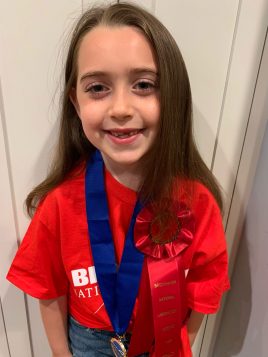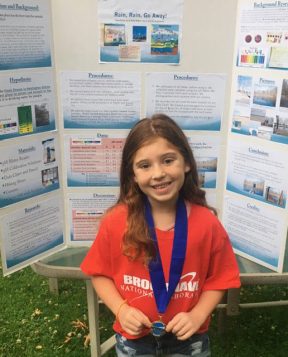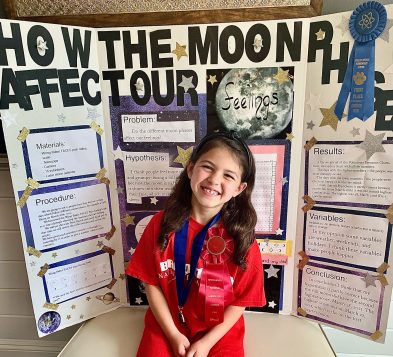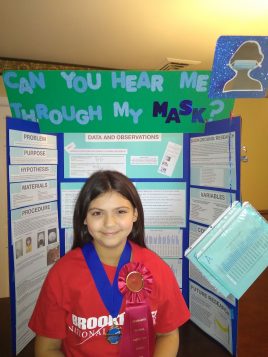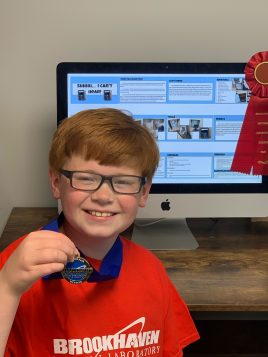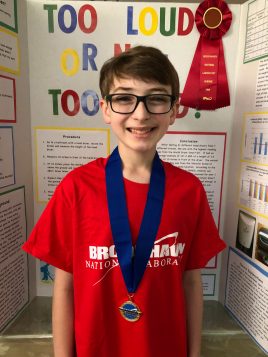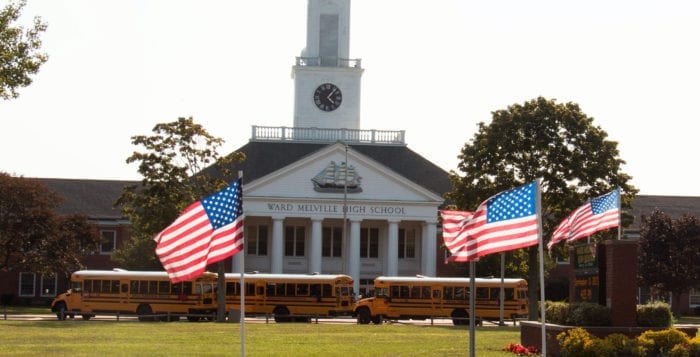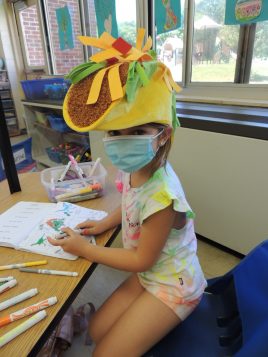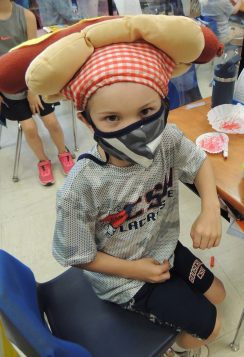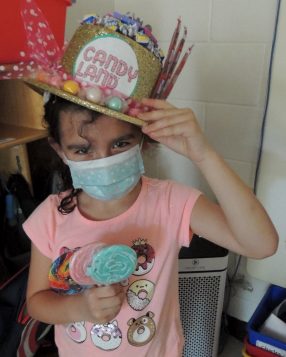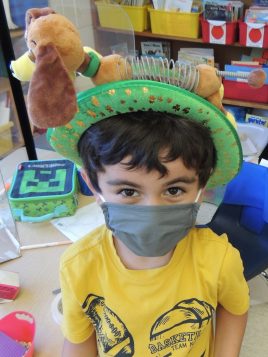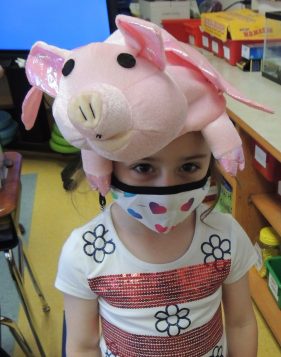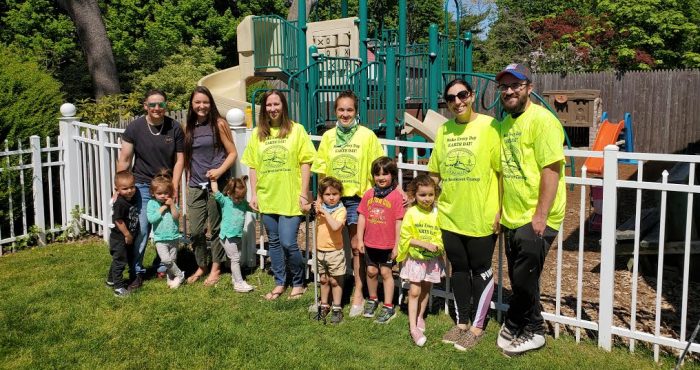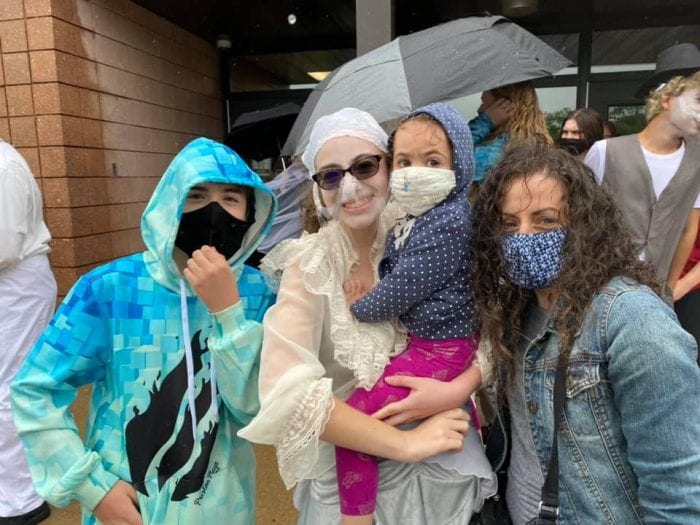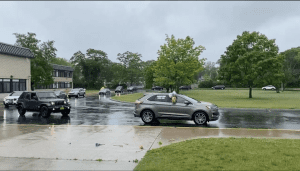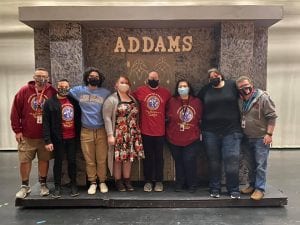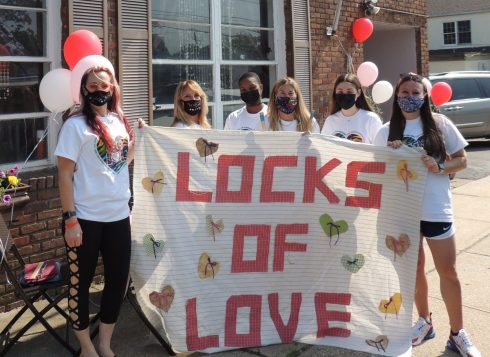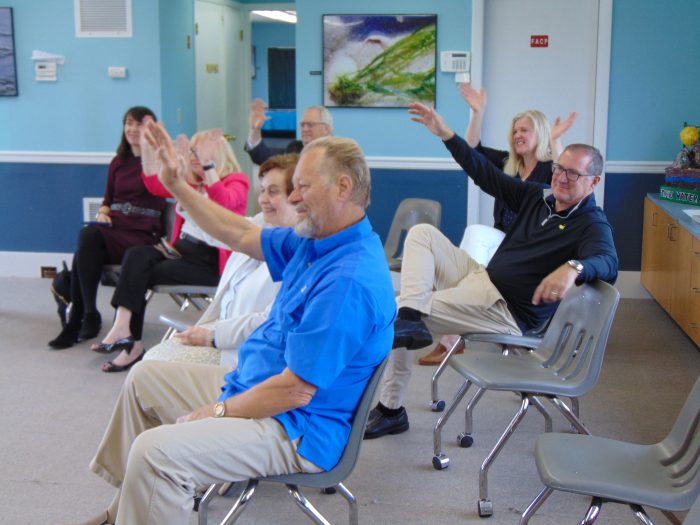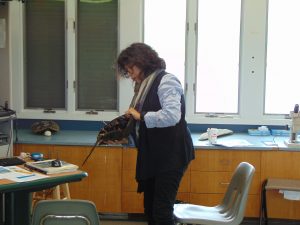Brookhaven National Laboratory in Upton hosted a virtual Elementary Science Fair awards ceremony on June 4. Suffolk County students from kindergarten through sixth grade who garnered first place and honorable mentions in the 2021 Elementary Science Fair Competition were honored.
Volunteer judges considered a total 184 science projects by students in kindergarten through sixth grade. Seven students earned first place in their grade level for stand-out experiments Fifteen students received honorable mentions for their experiments. Students qualify for Brookhaven Lab’s competition by winning science fairs held by their schools.
Students who earned first place in their grade level received medals and ribbons, along with banners to hang at their school to recognize the achievement. Here are the winners and their projects:
Kindergartener Violet Radonis of Pines Elementary, Hauppauge Public Schools, “Which Mask You Ask? I Am on the Task.”
First grader Ashleigh Bruno, Ocean Avenue Elementary, Northport-East Northport Union Free School District, “Rain, Rain Go Away”
Second grader Celia Gaeta, Miller Avenue School, Shoreham-Wading River Central School District, “How the Moon Phases Affect Our Feelings”
Third grader Emerson Gaeta, Fort Salonga Elementary, Kings Park Central School District, “Can You Hear Me Through My Mask?”
Fourth grader Matthew Mercorella, Sunrise Drive Elementary, Sayville Public Schools, “Shh…I Can’t Hear”
Fifth grader Grace Rozell, Ocean Avenue School, Northport-East Northport Union Free School District, “Edible Experiments”
Sixth grader Patrick Terzella, Hauppauge Middle School, Hauppauge Public Schools, “Too Loud or Not Too Loud?”
View all science fair projects: https://flic.kr/p/2kZPtqY
Finding fun in the scientific process
This is the second year that the Office of Educational Programming (OEP) at Brookhaven Lab organized a virtual science fair to ensure that local students had the opportunity to participate safely amid the COVID-19 pandemic.
Each year, the competition offers thousands of students a chance to gain experience — and have fun — applying the scientific method. The Brookhaven Lab event recognizes the achievement of the students in winning their school fair and acknowledges the best of these projects.
“The Brookhaven Lab Elementary School Science Fair encourages students to utilize the scientific method and answer a question that they have independently developed,” said Amanda Horn, a Brookhaven Lab educator who coordinated the virtual science fair.
Students tackled a wide range of questions with their experiments, including exploring how the moon phases affect our feelings to testing different materials, investigating how to improve their at-home internet connection, and finding safe masks for their friends and families.
First grader Ashleigh Bruno, who garnered a top spot for an experiment on acid rain, evaluated the pH levels in local water sources to learn if animals could live safely within them.
“I was really happy because I learned how to test the water and it was really fun to do with my family,” Bruno said.
Third grader Emerson Gaeta explored whether wearing a frame with different kinds of face masks could improve how we hear people who are speaking while wearing a mask. She used a foam head equipped with a speaker to measure how loud sounds came through the masks.
“I was here once before and I didn’t win,” Gaeta said. “Now I won first place so I’m really happy about that.”
Fourth grader Matthew Mercorella said he was excited to learn of his first-place win for his experiment seeking to find the best sound-proofing material. He found the best part of his project to be the process of testing materials by playing music through a speaker placed inside of them to see which put out the lowest and highest decibels.
“It encourages the students to think like a scientist and share their results with others,” said Horn. “Our goal is to provide students with an opportunity to show off their skills and share what they have learned.”
Honorable Mentions:
Kindergarten
Carmen Pirolo, Bellerose Avenue Elementary, Northport-East Northport Union Free School District, “Egg Shells and Toothpaste Experiment”
Filomena Saporita, Ocean Avenue Elementary, Northport-East Northport Union Free School District, “Rainbow Celery”
First Grade
Evelyn Van Winckel, Fort Salonga Elementary, Kings Park Central School District, “Is Your Mouth Cleaner Than A Dog’s?”
Taran Sathish Kumar, Bretton Woods Elementary, Hauppauge Public School District, “Scratch and Slide”
Second Grade
Luke Dinsman, Dickinson Avenue School, Northport-East Northport Union Free School District, “What Makes a Car Go Fast?”
Adam Dvorkin, Pulaski Road School, Northport-East Northport Union Free School District, “Salty Sourdough”
Lorenzo Favuzzi, Ivy League School, “Prime Time”
Third Grade
Ethan Behrens, Tangier Smith Elementary, William Floyd School District, “Deadliest Catch”
Anna Conrad, Dayton Avenue School, Eastport-South Manor Central School District, “Hello Paper Straws”
Fourth Grade
Michael Boyd, Cherry Avenue Elementary, Sayville Public Schools, “Utility Baby”
Michaela Bruno, Ocean Avenue Elementary, Northport-East Northport Union Free School District, “Weak Wi-Fi, Booster Benefit”
Fifth Grade
Hailey Conrad, Dayton Avenue School, Eastport-South Manor Central School District, “Breathing Plants”
Rebecca Bartha, Raynor Country Day School, “Natural Beauty Makes a Better Buffer”
Colin Pfeiffer, Tamarac Elementary, Sachem Central School District, “Turn Up the Heat”
Sixth Grade
Akhil Grandhi, Hauppauge Middle School, Hauppauge Public School District, “Which Fruit or Vegetable Oxidizes the Most in Varied Temperature?”
For more information, visit www.bnl.gov.


